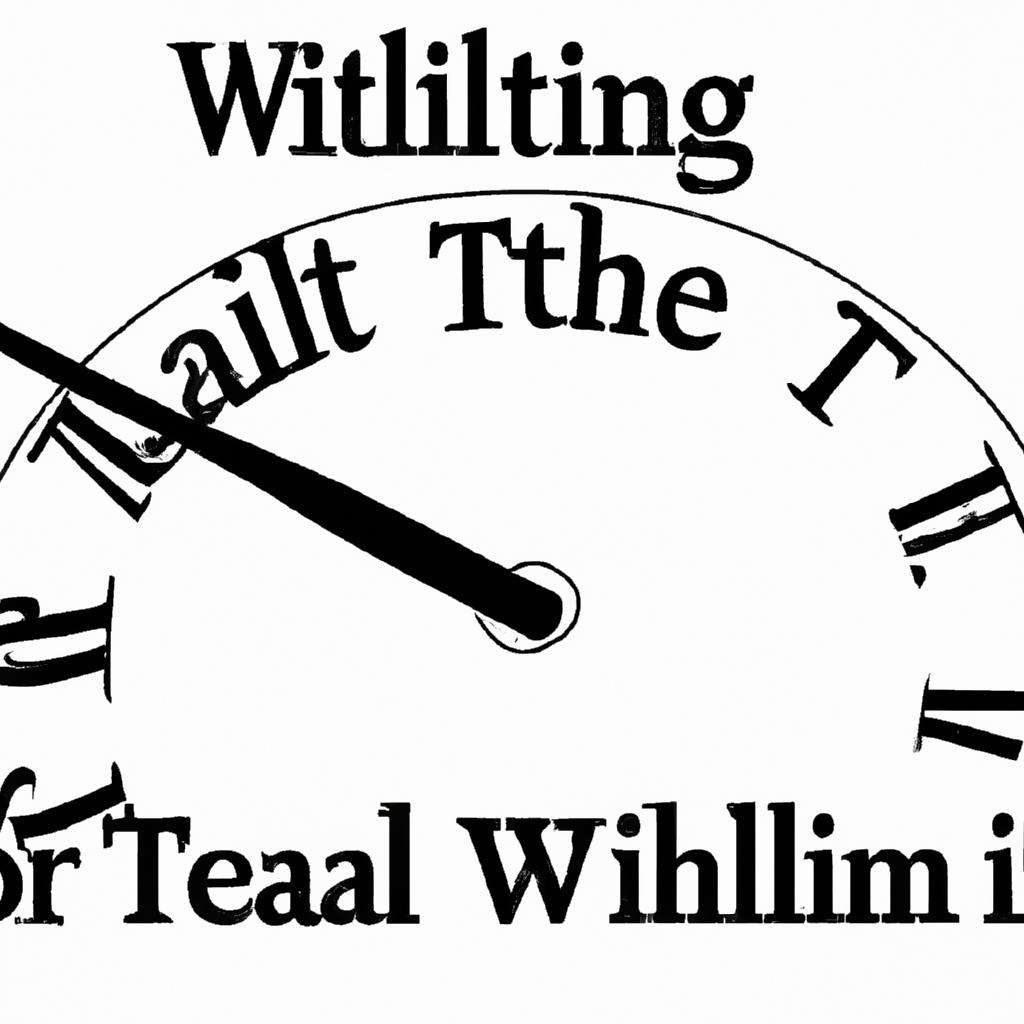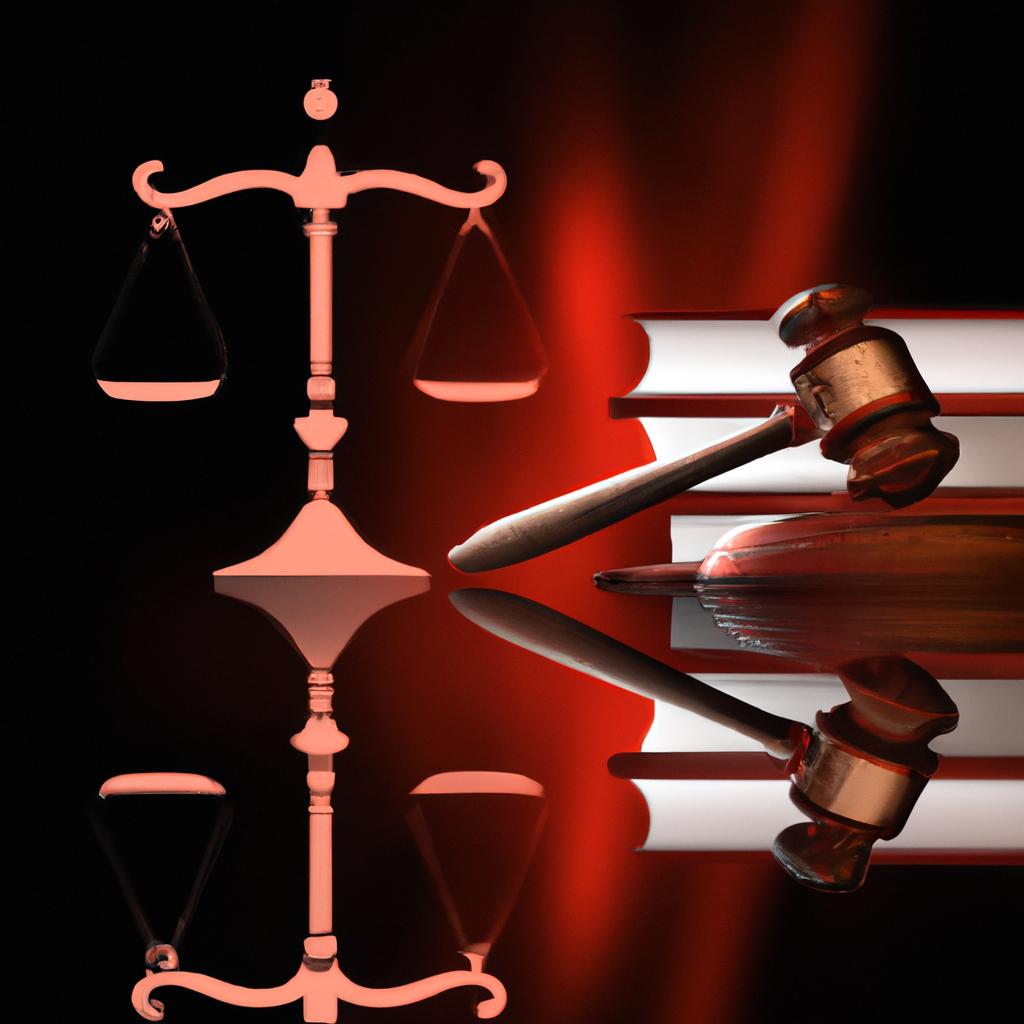In the realm of estate planning and probate law, one question that often arises is when a Will is deemed valid and read after the passing of the testator. As experienced attorneys at Morgan Legal Group located in New York City, we understand the intricacies of Wills, trusts, and the legal protocols surrounding posthumous document execution. In this article, we will delve into the various factors that determine when a Will is read after death, providing clarity and guidance for those navigating the complex terrain of estate administration.
Determining the Timing of Will Reading Post-Death
is a crucial aspect of the probate process. Once an individual passes away, their will is typically read to the beneficiaries, heirs, and other interested parties. It is essential to understand the timing of when the will is read after death to ensure a smooth transition of assets and property according to the deceased’s wishes.
In most cases, the will is read after the funeral and burial services have taken place. This allows the family and loved ones to grieve and process the loss before addressing the legal matters outlined in the will. The executor of the will, appointed by the deceased or the court, is responsible for scheduling the will reading and ensuring all parties involved are present. It is crucial to consult with a legal professional, such as the experts at Morgan Legal Group in New York City, to guide you through the probate process and ensure that the will is read in a timely and appropriate manner.
Importance of Following Legal Protocols in Will Execution and Reading
Ensuring that legal protocols are followed in the execution and reading of a will is crucial in avoiding disputes and ensuring that the wishes of the deceased are carried out effectively. By adhering to these protocols, the validity of the will is upheld, and the potential for challenges from disgruntled family members or beneficiaries is minimized.
One key aspect of following legal protocols in will execution and reading is the timing of when the will is read after death. It is essential to wait until after the funeral to read the will, as emotions can run high during this time, and reading the will too soon may lead to conflicts. Additionally, the will should be read in the presence of witnesses to ensure that all parties are aware of the contents and that any questions or concerns can be addressed in a transparent manner.

Signs Indicating When a Will Should Be Read After Death
There are certain signs that indicate when a will should be read after death. It is important to be aware of these signs and take appropriate action if any of them are present.
:
- Family members or beneficiaries are unsure about the deceased’s wishes
- There are disputes or disagreements among family members regarding the distribution of assets
- There are concerns about the validity of the will
- There are suspicions of foul play or undue influence in the creation of the will

Consulting with Experienced Estate Planning Attorneys for Proper Will Execution and Reading
Consulting with experienced estate planning attorneys is essential for ensuring proper will execution and reading. It is important to seek guidance from professionals who understand the legal complexities involved in the distribution of assets after death. By working with knowledgeable attorneys, you can ensure that your wishes are accurately reflected in your will and properly executed according to the law.
In the event of a death, the will is typically read to the beneficiaries within a few weeks after the funeral. This reading may take place at the attorney’s office or another designated location. During the reading, the executor of the will presents the document and explains its contents to the beneficiaries. It is crucial to have an experienced attorney present during this process to address any questions or concerns that may arise. Remember, consulting with an estate planning attorney ensures that your will is executed smoothly and your wishes are carried out effectively.
Q&A
Q: Is a will read immediately after someone passes away?
A: It depends on the laws and procedures in place in the specific jurisdiction where the deceased lived. In some places, wills are read shortly after death, while in others it may take some time.
Q: Who typically reads the will?
A: The executor of the will is usually responsible for reading the will and carrying out the deceased’s wishes as outlined in the document.
Q: Can anyone attend the reading of a will?
A: The reading of a will is typically not a public event, and only those who have a direct interest in the contents of the will, such as beneficiaries or heirs, are usually present.
Q: What happens if a will is not found after someone dies?
A: If a will cannot be located after someone passes away, the estate may be subject to the laws of intestacy, meaning that the deceased’s assets will be distributed according to state laws rather than their own wishes.
Q: Can a will be contested after it is read?
A: Yes, a will can be contested after it is read if there are valid reasons to believe that it does not accurately reflect the deceased’s wishes or if there are concerns about its validity.
Q: How can someone ensure that their will is properly executed after their death?
A: It is important for individuals to work with a qualified estate planning attorney to draft a legally binding will and ensure that it is properly executed according to the laws of their jurisdiction. Regularly reviewing and updating the will as circumstances change is also recommended.
In Retrospect
As we ponder the mysteries of what happens to our wills after we pass on, one thing remains certain: our final wishes should not be left to chance. Whether it be through careful planning, clear communication with loved ones, or the guidance of legal professionals, ensuring that our intentions are known and honored is crucial. So, as we continue to navigate the complexities of life and death, let us take comfort in the knowledge that our legacies can live on in the careful crafting of our wills. After all, even in death, our voices can still be heard.
 Title: Understanding the Concept of Reading a Will After Death
Title: Understanding the Concept of Reading a Will After Death
Introduction:
The passing of a loved one is inevitably a difficult and emotional time. Among the many challenges that arise after someone’s death is the process of distributing their assets and navigating their last wishes. For this purpose, a legal document called a “will” is created, outlining the deceased person’s final wishes and instructions for the distribution of their estate. But when is the will read after death? In this article, we will dive into the concept of reading a will after death and provide all the necessary information you need to know.
What is a Will?
A will is a legal document that outlines an individual’s final wishes, including the distribution of their assets and instructions for the care of any dependents after their death. It serves as a guide for the executor or administrator of the estate, who is responsible for carrying out the instructions outlined in the will. A will must meet certain legal requirements to be valid, such as the signature of the testator (the person creating the will) and two witnesses.
When is the Will Read After Death?
The reading of a will after death typically takes place after the funeral or memorial service. It may vary depending on the laws of the state or country, but generally, there is no set timeline for reading a will. The executor or administrator of the estate must first locate the original will and file it with the appropriate court. This process can take some time, especially if the will was not kept in a secure place or if it needs to be located from a lawyer’s office.
Who Reads the Will After Death?
The executor or administrator of the estate is responsible for reading the will after the person’s death. The executor is usually named in the will itself or appointed by the court if there is no designated executor. They are responsible for carrying out the instructions outlined in the will and ensuring that the deceased person’s wishes are fulfilled.
What Happens During the Will Reading?
The will reading is an official and legal process, and it usually takes place in the presence of the executor and any beneficiaries mentioned in the will. The executor begins by introducing themselves and explaining their role in the process. They then go on to read the will out loud, which may also include any specific requests or messages from the deceased. The beneficiaries have the opportunity to ask questions for clarification, and the executor ensures that everyone understands the instructions outlined in the will.
Are There Any Exceptions to Reading the Will?
There may be some cases where the will does not need to be read after a person’s death. If the estate is small and does not include any real estate, for example, there may not be a need for a formal will reading. The executor can take care of the distribution of assets without a formal reading. Additionally, if the will has been contested, it may be read in a court of law instead of a private reading.
Benefits of Reading the Will After Death:
1. Clarity: The will reading provides clarity to the family members and beneficiaries regarding the deceased person’s wishes. It also helps avoid any confusion or misunderstandings.
2. Legal Protection: A formal reading of the will provides legal protection to the executor or administrator of the estate. It serves as evidence that the instructions were followed accurately and can protect them from any potential disputes.
3. Emotional Closure: For many people, reading the will can bring emotional closure and allow them to begin the grieving process. It may also be a way for the deceased person to speak to their loved ones one last time.
Practical Tips for the Will Reading Process:
1. Choose a Suitable Location: The will reading should take place in a quiet and comfortable location to allow everyone to focus on the instructions outlined in the will.
2. Notify the Beneficiaries: It is essential to inform the beneficiaries ahead of time regarding the exact date, time, and location of the will reading. This will ensure that all interested parties are present, and the process can go smoothly.
3. Consult with a Lawyer: If the will is complex, it may be beneficial to consult with a lawyer before the reading to ensure all legal procedures are followed correctly.
Case Study:
For example, let’s consider the case of Sarah’s family. Sarah had passed away, leaving behind a large estate and three children. Her eldest child, Alex, was named the executor of the will. After locating the original will, Alex arranged for a formal will reading with the family and their lawyer. During the reading, it was revealed that Sarah had left a significant portion of her estate to charity, which came as a surprise to her children. However, because it was outlined in her will, there were no disputes, and the process was carried out smoothly.
Firsthand Experience:
“My father had passed away, and I had been named the executor of his will. I was nervous and unsure of what to expect during the will reading process. However, with the help of a lawyer, I was able to navigate the process and ensure that my father’s final wishes were carried out. It was a challenging but necessary process for closure for our family.” – Emily, California.
Conclusion:
In summary, the will reading is a crucial part of the estate distribution process that takes place after someone’s death. It provides clarity, legal protection, and closure for loved ones and ensures that the deceased person’s wishes are fulfilled. If you find yourself in a similar situation as the executor or a beneficiary of a will, it is essential to educate yourself about the will reading process and seek professional help if needed.


